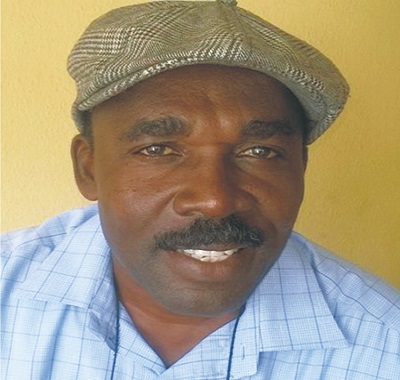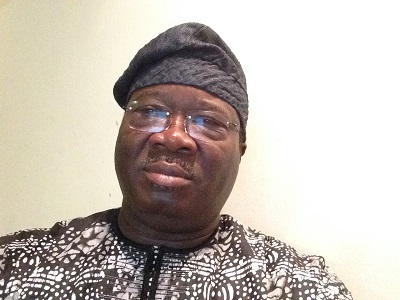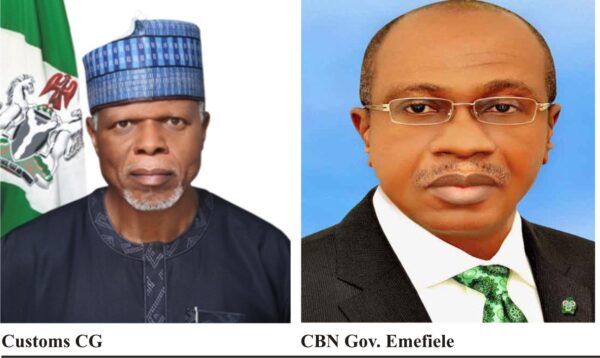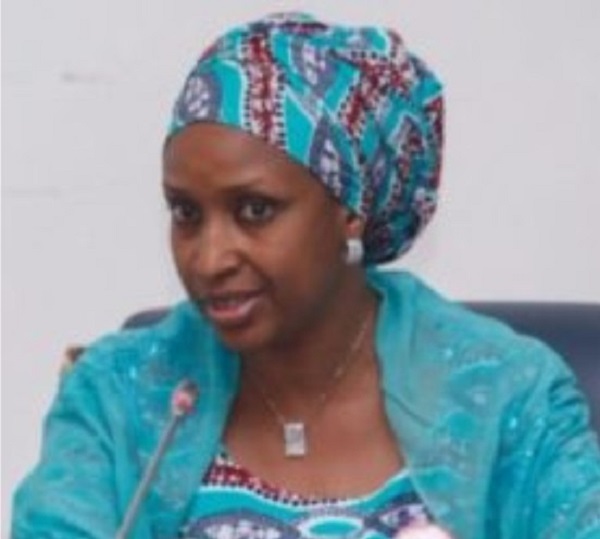Maritime Stakeholders Must Hold Regulators Accountable – Akabogu
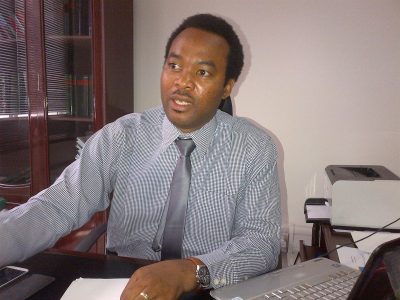
By Kenneth Jukpor
Mr. Emeka Akabogu is the Principal, Akabogu & Associates. He is a widely recognized expert in the field of maritime law and policy in Nigeria. During the recent 2018 Lagos International Maritime Week, he discussed several pertinent maritime issues with MMS Plus.
Excerpts:
What is your take on Nigerian Shippers’ Council (NSC) moves to stop the collection of container deposits by shipping companies, as a result of the challenges in the refund of the fund?
I don’t know the details of Shippers’ Council initiative to cancel that collection. However, I believe that the Council is concerned with the money of Nigerian shippers which are paid as deposit. The problem is that this fund isn’t recovered in most cases. The issue as to whether or not the container deposit fees should be cancelled is a matter that requires business consideration between the shipping companies and the shippers. I see the sentiment on the part of the shipping companies in introducing the container deposits because the container doesn’t belong to the importer. The container is simply an encasement in which the cargo of the importer has been brought into the country. The importer is privileged to take possession of the container without control by the shipping companies. These same containers are used to divest other shipments continuously. So, you can see why the shipping company has to come up with strategies to ensure that its container is returned to it. I see that container deposit as something in the nature of a security or collateral which the shipping company levies on the importer to ensure that it has its container returned within a certain time.
The problem is the issue of refund of the deposits after the container has been returned. We have seen several cases where the containers are returned but the container deposits which have been paid in respect of these containers are not paid back or not paid back promptly. Sometimes the issue lingers in such a manner that it seems to be a separate business venture on the part of the shipping companies. They pull a lot of funds together under the guise of container deposits and leverage on the income which such funds may give over a period of time before paying back. Sometimes the deposits aren’t refunded because the parties who are the importers are not very efficient in the process.
There should be a straightforward and timely arrangement to ensure that such monies are paid back speedily and efficiently. Shippers’ Council should be keen to develop initiatives that would ensure that these deposits are returned swiftly and the scheme of arrangement doesn’t deprive either party of its assets. It is the role of the Council as the economic regulator to ensure this level playing field.
We have had talks in several maritime conferences on the need to have a masterplan for the industry. In this conference, the lead speaker, Dr. Kofi Mbiah asserted that African countries must develop comprehensive maritime policies to enable the sector serve as a catalyst for accelerated economic growth. Does Nigeria have such policy?
Nigeria doesn’t have a comprehensive national maritime policy although there have been initiatives along that direction over the years. There has been no deliberate initiative which has been bought into and formally presented by the government of Nigeria for the maritime industry. This is a big minus for the industry. Indeed it is surprising that this hasn’t happened over the years. There was a time when we had the National Shipping Policy Act but that Act wasn’t really a shipping policy; rather, it was a legislation which was meant to put in place the defunct National Maritime Authority which has evolved into the Nigerian Maritime Administration and Safety Agency (NIMASA). The only policy around at that time was the United Nations Conference on Trade and Development (UNCTAD), 40-40-20 policy which was incorporated into the Act.
There is need for a comprehensive policy that incorporates dimensions from the policy for development of tonnage to policies for exponential growth of the support services to ensure that the country is a hub for engagements and ensure that the industry is growing from the assets and infrastructure to the intangible services. There isn’t such policy and there should be deliberate and concerted efforts towards ensuring that this kind of policy is developed. The good thing about this kind of policy is that it begins to guide the decision making process of the various individual regulatory agencies so that as they carryout their statutory mandate, they are guided by the spirit of the comprehensive policy which is in place.
I agree with Dr. Kofi Mbiah that a country like Nigeria which is desirous of very high maritime roles in the continent, should have such comprehensive maritime policy.
The proposed total closure of the Apapa-Wharf road led MMS Plus to source for statistics to show how much the nation would lose as a result of such action but we realized that no government agency could give the statistics. Isn’t this unfortunate?
There is no government agency that can provide such information at the moment because the interplay of relation between agencies which is required to generate that data is wide. There are linkages which cut across individual bodies and support services, so it is not possible to have the statistics docile in one agency. However, the National Transport Commission (NTC) when it becomes functional should be as near as possible to that agency that coalesce the data that is relevant to ensure a smooth and efficient transport sector. NTC will incorporate the land activities of the vehicles plying various routes, shipping, aviation and in doing this, it is coalescing the important niche services which would drive this kind of information you are talking about. I believe that NTC would become one of the most important agencies to the nation’s economy.
How do we address the issue of lack of political will especially to ensure that these astute recommendations that stem from the numerous maritime stakeholders conferences are implemented. Stakeholders keep repeating these challenges at every for a yet noting seems to be done.
Stakeholders have to start holding decision makers and the government accountable. We can’t stop talking, so the for a that keep happening are as important to the growth of the industry as any other initiative. In fact, imagine that with all the talk there has been sub-optimal action, what would have happened if there were no conferences. Envision a maritime industry that is devoid of conferences. That would be a recipe for arbitrariness and impunity.
However, these maritime industry summits enable stakeholders ventilate their concerns and I believe that some of the concerns are actually heard and worked on by the authorities. However, the political will is needed to ensure that the resolutions of the industry are actionable and ultimately transformed into hard policies and action points. Stakeholders should make it a point of duty to hold the regulators accountable because the regulators exist for the stakeholders. When we don’t hold the regulators accountable and treat them like they are doing very well, they assume that there is nothing wrong in the sector.
We need strong pressure groups as stakeholders who are critically affected by the decisions and actions of people in government. We should begin to insist through strong positions and robust disagreements to the regulations of the industry. These regulators who are living solely on the mandate and existence of the operators would want to take a second look at what the operators are demanding. The regulators would want to deliver value and that is want everyone wants.
How would do describe the impact of this programme, 2018 Lagos International Maritime Week to the nation’s shipping sector?
The Lagos International Maritime Week is a useful addition to the large body of events is what the maritime industry needs to develop. At programmes like this, the operators from various areas are able to meet and raise concerns about the issues that affect them and identify one or two people who may be part of developing some initiatives to solve their problems. It is always good to have such an opportunity and I commend the organizers of the Lagos International Maritime Week for a job well done and I’m wishing them the very best in the future.




